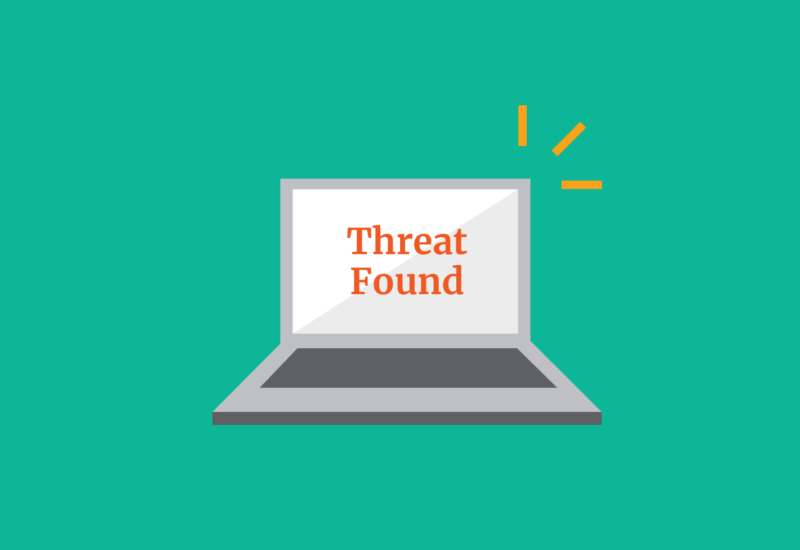Start Building Your Child’s Credit
Identity theft is one of the fastest-growing crimes in the United States—according to recent surveys, someone’s identity is stolen every two seconds, resulting in billions of dollars lost by unsuspecting victims. The consequences can be devastating for victims, impacting everything from loan approvals to job offers. But the good news is there are signs of identity theft to watch for and steps you can take immediately to minimize the damage.
If you have children, you’ll want to be extra vigilant since children’s identities are particularly vulnerable. Identity theft can happen to anyone, but with proper planning and tools, you can outsmart identity criminals.
Effects of Identity Theft on Victims
If your identity gets stolen, it can turn your world upside down. Identity thieves can obtain new credit cards, open bank accounts, apply for loans, and commit tax fraud—all in your name. They may also use your personal information to obtain:
- Driver’s licenses
- Passports
- Other IDs to facilitate criminal activity
This can implicate you in crimes you didn’t commit and take time to untangle.
For children, identity theft can go undetected for years, becoming apparent only when they apply for college or a job. In the meantime, their credit and Social Security numbers (SSNs) may have been used without consent, saddling them with debt before they’ve earned a dollar.
What Are the Warning Signs of Identity Theft?

Once your identity has been stolen, the damage can be difficult to undo. Unfortunately, identity theft is a common crime, with over 14 million victims each year in the U.S. alone—and recognizing the signs early on is key to limiting the impact. Here are three warning signs of identity theft:
- Suspicious charges or withdrawals
- Bills for accounts you didn’t open
- Rejection of legitimate applications
Suspicious Charges or Withdrawals
If you notice charges on your credit or debit cards that you don’t recognize or money inexplicably missing from your bank accounts, it could be a sign that an ID thief has gotten hold of your financial accounts.
Your mail may provide the first clues. Missing bank statements, credit card bills, or other financial documents could indicate an identity thief has changed your mailing address to intercept sensitive information.
Rejection of Legitimate Applications
Have you applied for a loan, credit card, or other account and been inexplicably rejected? ID thieves may have damaged your credit profile by opening unauthorized accounts, maxing out credit lines, or failing to make payments. This can lower your credit score and cause legitimate applications to be denied.
Bills for Accounts You Didn’t Open
Bills for accounts you didn’t open or services you didn’t subscribe to and unexplained charges on your accounts or financial statements are major red flags. This could be a sign an identity thief has gained access to your existing accounts or opened new ones in your name. ID thieves often open fraudulent accounts in your name once they have your personal information.
Also, your medical insurance being billed for services you didn’t receive may indicate your health insurance information has been stolen. This is particularly concerning, as it provides access to sensitive medical data and billable medical services. If you receive credit card bills in your child’s name, it’s an indicator that your child’s identity may have been compromised—children typically don’t have credit histories, making them attractive targets for identity thieves.
Steps To Take if You or Your Child Are a Victim Of Identity Theft

If you suspect you or your child have become a victim of identity theft, take action immediately. The sooner you address the issue, the less damage can be done. Here are six steps you should take:
- File a police report—Contact your local police department and file an official identity theft report. Get a copy of the report in case you need it for creditors
- Place a fraud alert or freeze your credit—Place a fraud alert or freeze your credit report with Equifax, Experian, and TransUnion to prevent further damage from identity theft
- Contact creditors—Contact any companies where new unauthorized accounts were opened in your name. Cancel those accounts and place a fraud alert on your existing accounts
- File a complaint with the FTC—Report identity theft to the FTC through their dedicated identity theft portal
- Cancel compromised accounts—Close any accounts that have been tampered with or opened fraudulently and get replacement cards with new account numbers
- Monitor accounts closely—Check all financial accounts and credit reports regularly for signs of new fraud—identity theft can happen again, so vigilance is key
Ways To Prevent Identity Theft
Taking a proactive stance against identity theft can give you peace of mind that your accounts and personal information are as secure as possible. While no approach is 100% foolproof, making prevention a habit can help reduce the risk of you or your child becoming a victim of identity theft. Here are essential tips to fortify your defenses:
- Monitor accounts and statements
- Use strong and unique passwords
- Shred sensitive documents
- Freeze credit reports
- Invest in identity theft protection service
Monitor Accounts and Statements
Check bank and credit card statements each month for any unauthorized charges. Look for strange withdrawals, purchases you didn’t make, or bills that don’t seem right. Report anything suspicious immediately.
You should also check your credit report once a year to ensure no new accounts have been opened in your name. Do the same for your child—children have clean credit records and SSNs that aren’t tied to any criminal history, which makes them prime targets. For extra security, monitor their accounts and personal information regularly, especially if they’re active online.
Use Strong and Unique Passwords
In your passwords, use a minimum of 8–12 characters and a mix of letters, numbers, and symbols. Don’t reuse the same password across sites—if needed, use a password manager to keep track of them. When it comes to setting security questions, the FTC recommends opting for questions with answers unique to you rather than easily accessible data such as:
- ZIP code
- Place of birth
- Your mother’s maiden name
Additionally, avoid using details closely linked to your identity, like the final four digits of your SSN, birth date, or any variations of your name.
Shred Sensitive Documents
Shred receipts, statements, expired IDs, and credit card offers before throwing them out because identity thieves may sift through trash to find personal details. While it may seem archaic in the age of sophisticated phishing attacks and online data leaks, dumpster diving remains a tactic criminals still use to acquire sensitive information.
Freeze Credit Reports
Placing a freeze on your credit reports restricts access and helps prevent thieves from opening new accounts in your name. You can easily lift the freeze when needed for legitimate purposes like applying for a loan. Since children are prime targets of identity theft, freezing their credit files is a tactic to help ensure their protection—but it doesn’t allow them to build credit.
According to a 2021 study by Javelin Strategy & Research, identity fraud targeting children leads to an annual loss of nearly $1 billion for U.S. households. The study revealed that approximately one in 50 children in the U.S. have fallen victim to identity fraud, and one in 45 have had their personal information compromised in data breaches.
Invest in an Identity Theft Protection Service
Investing in an identity theft protection service is one of the smartest moves you can make to safeguard yourself and your family. These services constantly monitor credit reports and scores for sudden drops and search public records, the dark web, and other sources for your personal details to make sure they haven’t been compromised.
A dedicated service like FreeKick can offer you a convenient way to protect your family’s private information. FreeKick’s ID theft protection services include features specifically designed to monitor for signs of child ID theft and fraud, giving parents extra peace of mind.
FreeKick Keeps Your Family Safe From Identity Crime
Offered by Austin Capital Bank, FreeKick is an FDIC-insured deposit account that protects your family’s identities and helps build credit for your children.
A secure identity is important for major life milestones, such as securing a college loan and landing a good job. Unfortunately, child identity theft occurs every 30 seconds, which is why it’s crucial to take all precautions against this crime—like using a good identity protection service.
Identity Protection With FreeKick
FreeKick’s identity protection services cover your entire family. Here’s what the service offers for minors and adults:
| Services for Minors | Services for Adult Children and Parents |
| Credit profile monitoring Social Security number (SSN) monitoring Dark web monitoring for children’s personal information Up to $1 million identity theft insurance Full-service white-glove concierge credit restoration Sex offender monitoring—based on sponsor parent’s address | Credit profile monitoring SSN monitoring Dark web monitoring for personal information Up to $1 million identity theft insurance Full-service white-glove concierge credit restoration Lost wallet protection Court records monitoring Change of address monitoring Non-credit (Payday) loan monitoring Free FICO® Score monthly FICO® Score factors Experian credit report monthly |
Credit Building With FreeKick
Secure identities must be complemented by a good credit profile for financial success in life. Enter FreeKick’s credit building service, which is available for children between 13 and 25 years of age.
You’ll have to take three steps to activate the service:
- Create an Account—Create an account at FreeKick.bank and choose a deposit that suits your budget
- Set It and Forget It—Once you activate the account, FreeKick will start building 12 months’ worth of credit history for your child
- Keep Growing—After 12 months, you can close the account without any fees or continue building credit for your family for another year
As a result of establishing credit early, your child will get a credit history head start of up to five years when they turn 18. By enabling them to secure better loan terms and other financial benefits, this will help them save $200,000 during their lifetime.
FreeKick Pricing
FreeKick has two pricing plans:
| FDIC-Insured Deposit | Annual Fee |
| $3,000 | $0 (Free) |
| No deposit | $149 |
Each plan offers:
- Credit building for six children aged 13 to 25
- Identity protection for two parents and six children aged 0 to 25
Secure your family’s identities and their financial future—sign up for FreeKick today.

Freekick provides a double dose of financial empowerment and security for your whole family. It helps teens and young adults build strong credit profiles and offers identity motoring for up to two adult parents and six children under 25.





